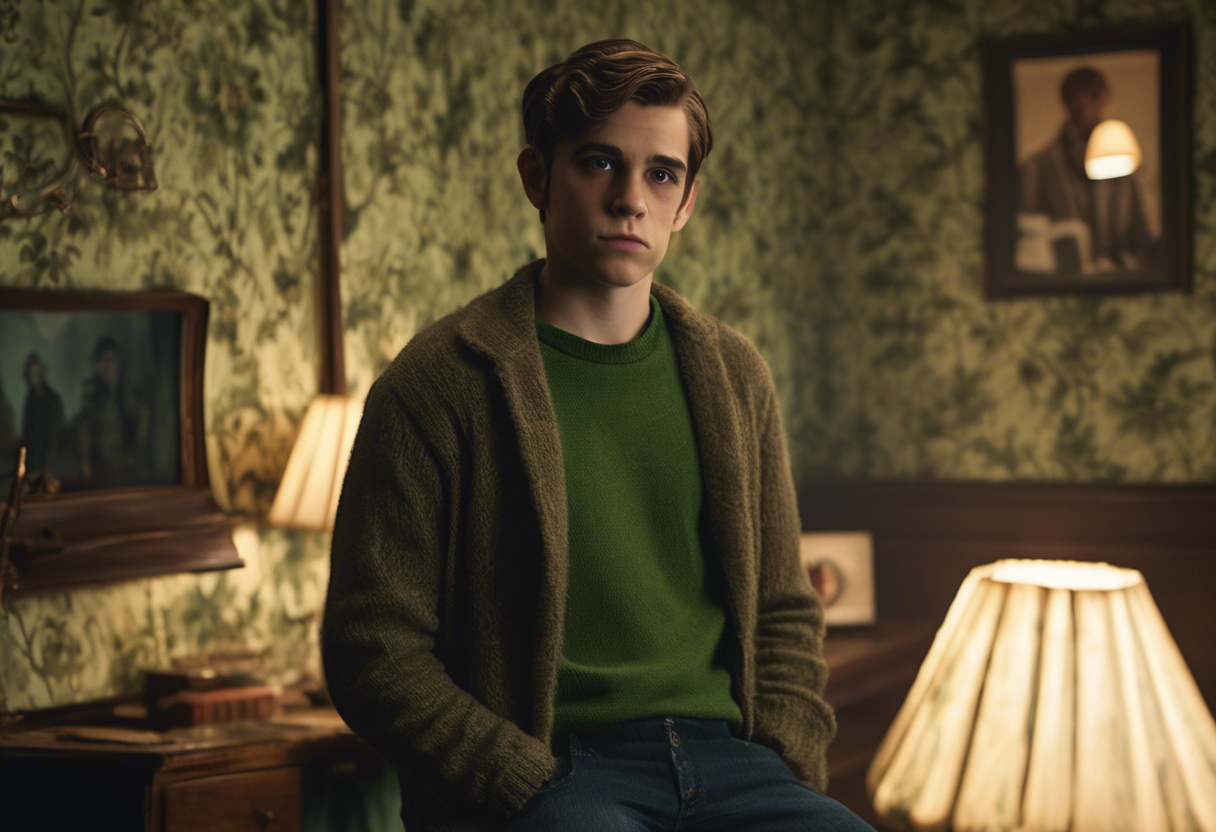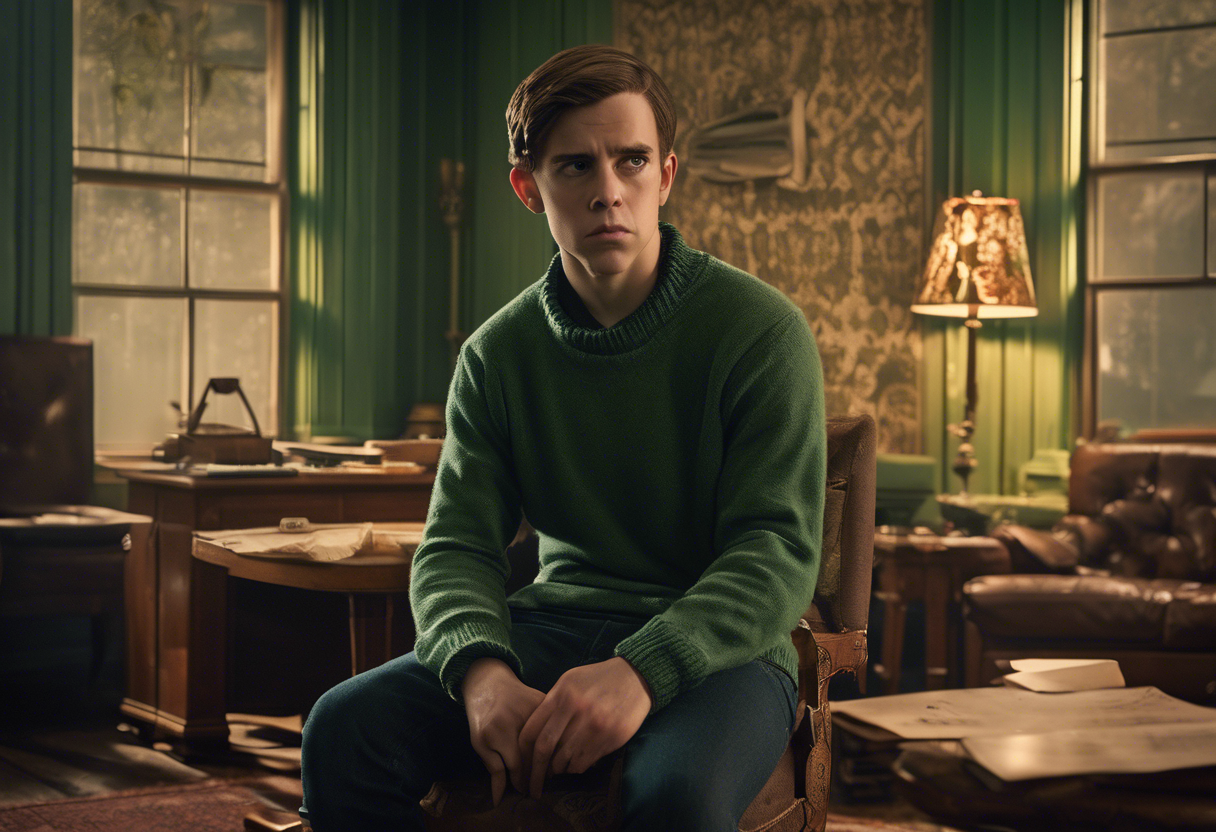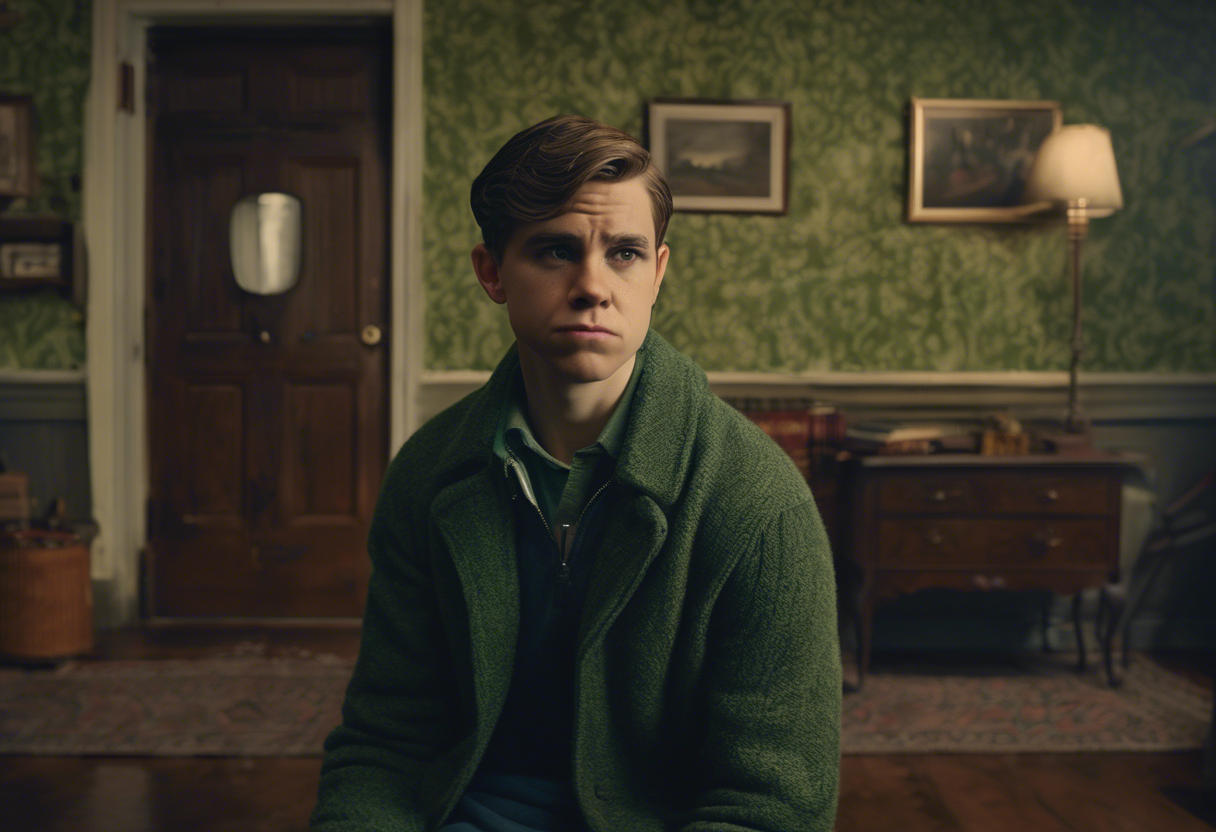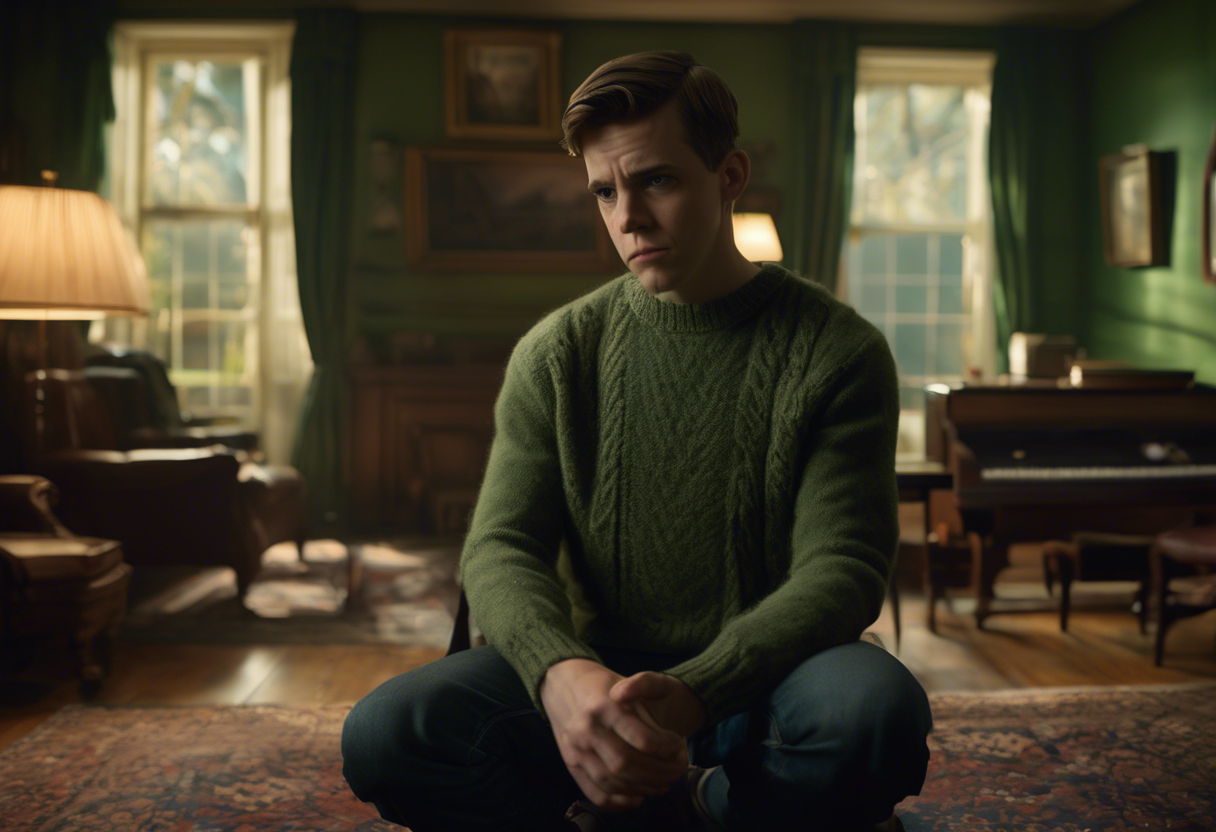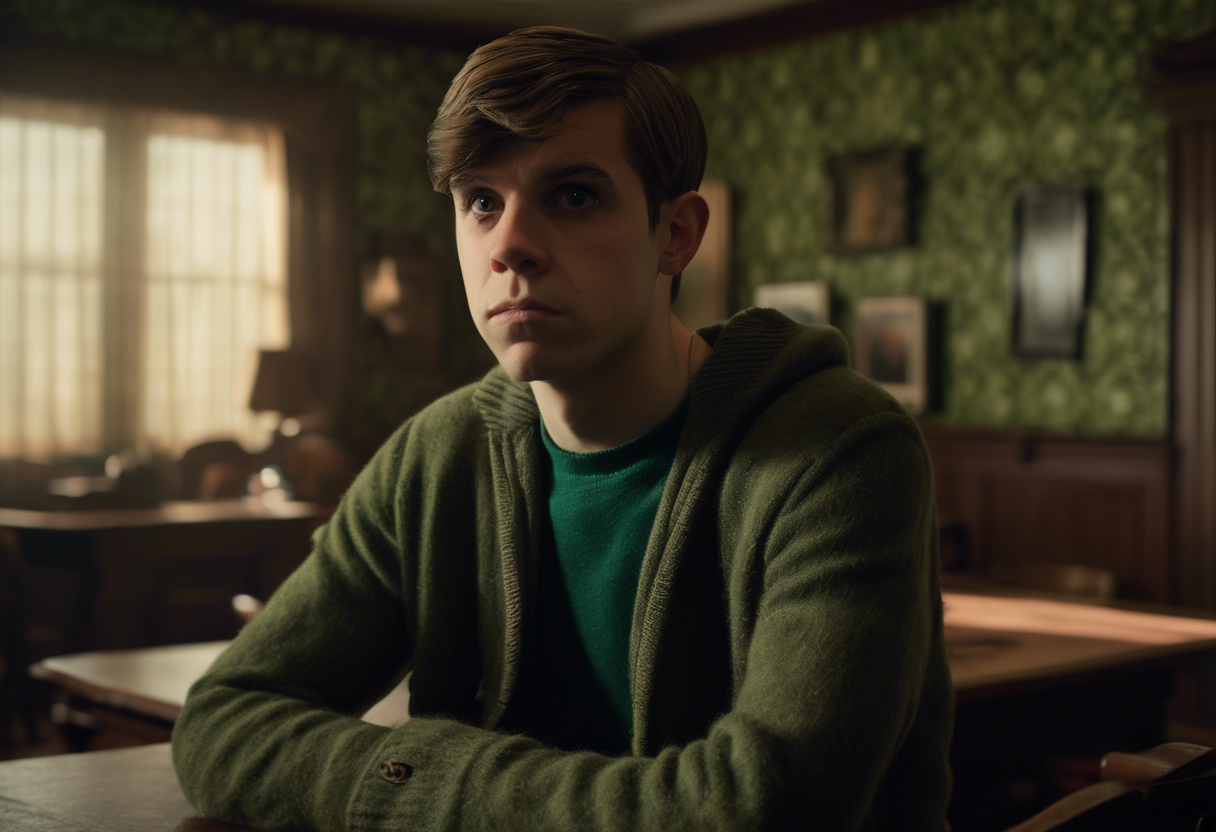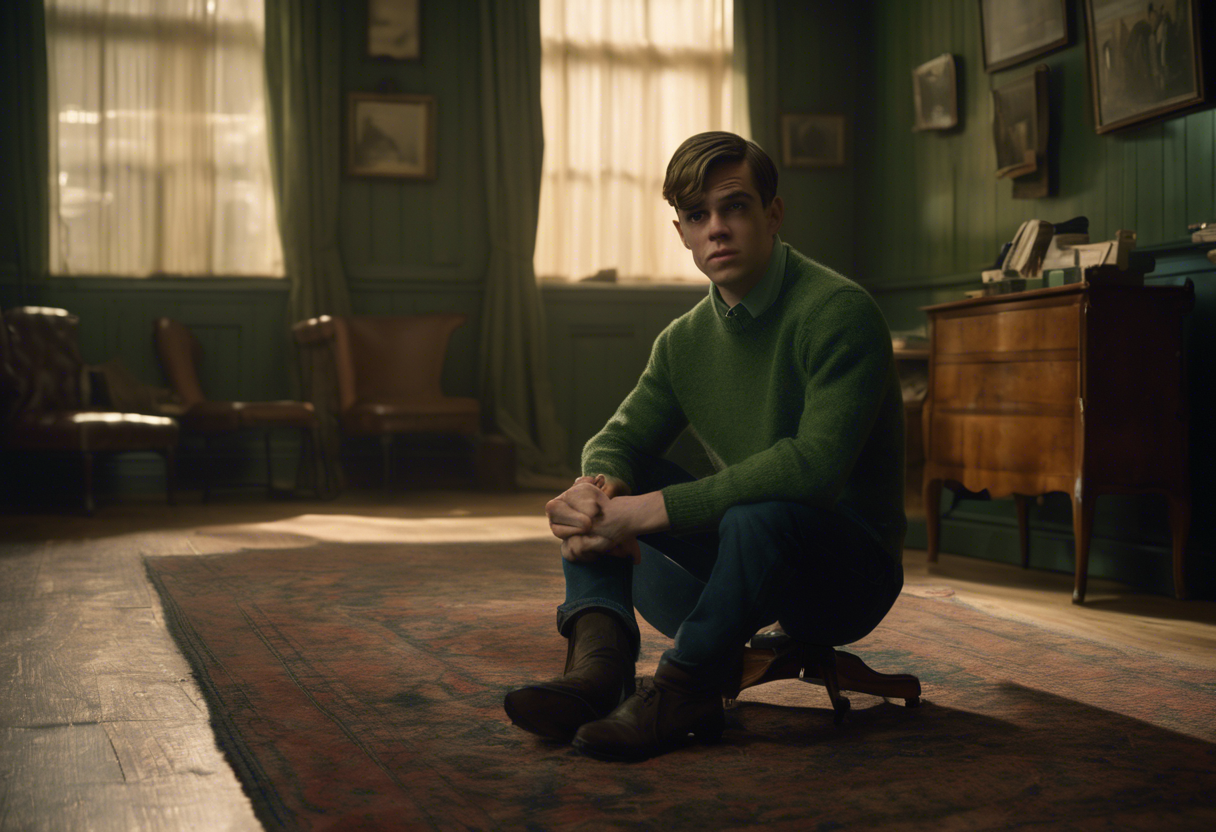Contents
Harlan Cooper in The Umbrella Academy
Introduction
Harlan Cooper, a pivotal character in the Netflix series The Umbrella Academy, is introduced in Season 2 and plays a significant role in the narrative of the show. He is initially portrayed as a non-verbal, autistic child living with his parents, Sissy and Carl Cooper, on a farm in Dallas in 1963. Harlan’s character is notable not only for his unique abilities and backstory but also for his representation of autism in media.
Harlan’s origins are deeply intertwined with the main character Viktor Hargreeves (formerly Vanya Hargreeves), who accidentally transfers some of his superpowers to Harlan during a stay with the Cooper family [2][5]. This transfer of powers sets the stage for Harlan’s complex and often tumultuous journey.
Role in the Series
In Season 2, Harlan is depicted as a shy and autistic child who experiences meltdowns, referred to as "episodes" by his parents. These meltdowns are triggered by overwhelming situations and are accompanied by a surge of sonic energy that can be harmful to those around him [4]. After gaining his powers, Harlan’s meltdowns become more intense, leading to significant events such as the injury of his father, Carl, and the defense against bullies at school.
As the series progresses to Season 3, Harlan is shown 46 years later as an old man named Lester Pocket, played by Callum Keith Rennie. This transformation is a result of his need to move frequently due to his lack of control over his powers. The revelation that Lester is actually Harlan occurs in episode 3, when he uses his powers to kill Jayme and Alphonso during a standoff, sensing Viktor’s presence once again [1].
Harlan’s storyline is marked by tragedy, particularly the death of his mother, Sissy, on October 1, 1989, which coincides with the birth date of the Umbrella Academy. Overcome by grief, Harlan loses control of his powers, leading to catastrophic consequences that result in the death of the Umbrella Academy’s birth mothers, except for Ben who exists as a Sparrow in the Season 3 timeline [1].
Character Analysis
Harlan Cooper’s character is multifaceted and deeply human. As a child, he is portrayed as vulnerable and struggling to cope with his newfound powers and his autism. His meltdowns and the energy surges that accompany them are not just plot devices but also a realistic portrayal of the sensory and emotional challenges faced by individuals on the autism spectrum [4].
As an adult, Harlan’s character evolves significantly. He is no longer non-verbal and has developed a sense of self-preservation, leading him to adopt the alias Lester Pocket. Despite this, his past continues to haunt him, and his lack of control over his powers remains a constant threat. This duality makes Harlan a compelling and relatable character, as audiences can see both his vulnerability and his resilience.
Harlan’s relationships with other characters, particularly Viktor, are central to his development. Viktor’s accidental transfer of powers to Harlan creates a bond between them, even if it is not immediately apparent. This connection is revisited in Season 3, highlighting the long-term impact of their encounter.
Themes and Symbolism
Harlan Cooper embodies several key themes in The Umbrella Academy. One of the most significant is the theme of power and its consequences. Harlan’s powers, though unintended, have far-reaching and often devastating effects, mirroring the broader narrative of the show where superpowers are both a blessing and a curse.
Another theme is the representation of autism and neurodiversity. Harlan’s character is one of the few in mainstream media to portray an autistic individual in a realistic and respectful manner. His meltdowns and sensory issues are depicted as part of his neurological profile rather than as plot gimmicks, contributing to a more inclusive and understanding portrayal of autism [2][4].
The character also symbolizes the impact of grief and loss. Harlan’s inability to cope with the death of his mother leads to a catastrophic event that shapes the entire narrative of the series. This underscores the theme of how personal tragedies can have far-reaching consequences.
Cultural Impact
Harlan Cooper’s introduction in The Umbrella Academy has been significant in terms of cultural impact. His portrayal as an autistic character has been praised for its realism and sensitivity. Fans and critics alike have appreciated the effort to represent autism in a way that is both authentic and respectful [2][4].
The character has also sparked discussions about representation in media, highlighting the need for more diverse and inclusive storytelling. Harlan’s story serves as a reminder that characters with disabilities or neurodiverse conditions can be central to the narrative rather than peripheral.
Critical Reception
The reception of Harlan Cooper has been largely positive. Critics have praised the show for its thoughtful portrayal of autism, noting that it avoids common stereotypes and instead offers a nuanced and empathetic representation [2][4].
However, there have been some controversies regarding the handling of certain aspects of Harlan’s character. Some viewers have expressed concerns about the depiction of meltdowns and the potential for misunderstanding or misinterpretation. Despite these concerns, the overall consensus is that Harlan’s character is a significant step forward in representation.
Legacy
Harlan Cooper’s legacy in The Umbrella Academy is profound. He has inspired a new wave of discussions about autism representation in media and has set a precedent for more thoughtful and inclusive storytelling.
His character continues to be relevant in contemporary discussions about neurodiversity and the importance of accurate representation. Harlan’s story serves as a reminder that characters with disabilities or neurodiverse conditions are not just side characters but can be central to the narrative, driving plot and character development in meaningful ways.
References
- https://www.gamesradar.com/umbrella-academy-harlan-cooper-season-3/
- https://kerrymagro.com/netflixs-the-umbrella-academy-features-new-autistic-character/
- https://en.wikipedia.org/wiki/List_of_The_Umbrella_Academy_characters
- https://aureliaundertheradar.wordpress.com/2022/12/30/how-did-the-umbrella-academy-handle-an-autistic-character/
- https://screenrant.com/justin-paul-kelly-umbrella-academy-character-explained/

